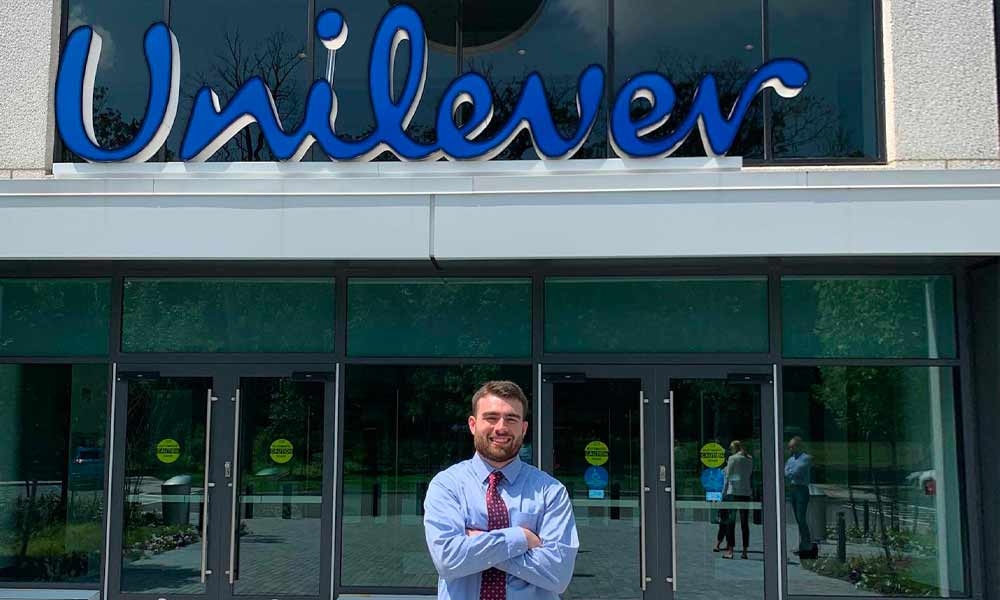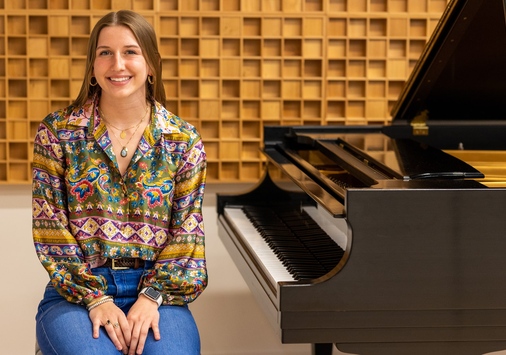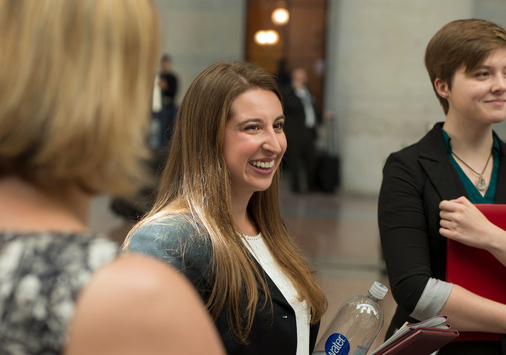
Brendan Boyle ’20 shares insights into the effect the COVID-19 pandemic has had on his work at Unilever.
Where are you now, and what are you doing?
Prior to the pandemic, I had been planning to move to Bentonville, Arkansas. Now, however, I am living in my hometown of Kennett Square, PA, working in the first rotation of Unilever’s (think Dove soap, Ben and Jerry’s Ice cream, and Hellmann’s mayo) Customer Development Future Leader Program. My first assignment is working as a Walmart Business Development Analyst. Over the next 3 years, I will be participating in three rotations (2 in sales and 1 in marketing) for various brands and retail teams before moving into a full-time role after the 3rd year.
Looking back over the past year, what were some of the key challenges of graduating and starting a career in a pandemic, and how did you tackle those challenges?
By far, the biggest challenge has been building strong relationships with my colleagues. Although video calls are very productive and efficient, the social aspect of having lunch together, talking at the water cooler, or just enjoying other team-related activities is hard to recreate online. However, I have started to reach out and schedule some online happy hours or coffee chats with individuals so as to introduce myself and discuss topics not related to our typical day-to-day affairs. In addition, I am part of our Diversity and Inclusion newsletter team and the U-Rally team, which is a group that my sector created to organize virtual events for the team to get together.
Another challenge has been battling the repetitiveness and mental fatigue of working from home every day. When I started my role at Unilever in July, the excitement and energy for starting my career compensated for the reality that I was working completely remotely. But as time passes, working and living in the same place has taken a toll on my mental health, especially when work picks up! I have been able to overcome this by really disengaging from work when I’m done with my day: I close my laptop, and I stay off my email. This has allowed me to spend my time elsewhere, such as working out, reading, baking, and even binge-watching some tv. So, don’t forget to take care of yourselves!
How (if at all) do you think your GC experiences helped prepare you to navigate the uncertainties of starting work in a pandemic?
Looking back at my GC experiences, our final team project in the senior capstone course (which included entrepreneurial work with the Red Frame Lab) is probably the academic experience most relatable to what my day-to-day looks like in a pandemic. On any given day, there are so many ad hoc projects that come up because of the uncertainties brought on by the pandemic. For instance, COVID lockdowns triggering massive sales that lead to out-of-stocks and then inventory shortages that culminate in supply chain struggles. These are all things that can change daily and that we need to understand and fix in real time. I remember all the pivoting that took place during our GC capstone team assignments to solve a sustainability issue. That project required us to brainstorm constantly, adapt our data collection as our project changed direction, and make adjustments in our final presentation up to the last minute. In only eight weeks, we needed to become experts to pitch our plans to our stakeholders. To this day, I am still working on becoming a retail expert during a pandemic as COVID continues to adjust the entire industry.
Do you think there are any “silver linings” or unexpectedly positive things that you’ve learned from this experience?
The silver lining from this whole experience has been learning that working from home is efficient. As a company, our productivity has been sustained throughout the entire year, and, personally, it convinced me that I could perform at a high level even from home. In fact, our CEO, Alan Jope, issued a statement that he expects the company to never return to a five-day, in-person work week, which he believes will allow for more flexibility and lead to happier and more motivated employees. I am looking forward to seeing other structural changes that will ultimately lead to a collectively healthier workforce where wellness is prioritized, and efficiency is still maintained.














